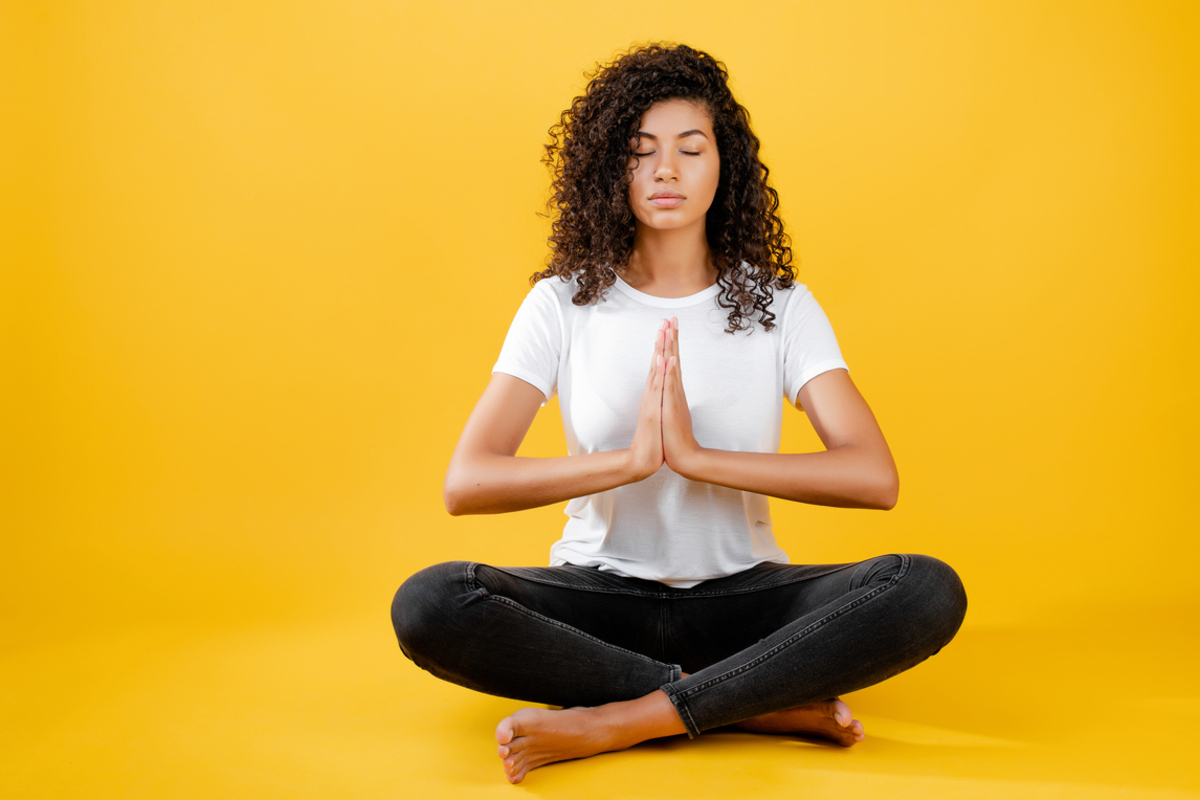The first things that come to mind when I think of mindfulness are yoga and spiritual forms of meditation — but mindfulness is so much more. Mindfulness is a way of thinking where you take everything in, from your environment to your thoughts and feeling.
Here’s an example.

Right now I’m thinking about how late it is and how I’m not going to get everything done. I’m a bit stressed. Practicing mindfulness would mean I’d pay attention to everything around me and note it. My shoulders and back are hurting. I feel tired and cold. I hear people talking outside.
Research suggests that mindfulness might help you deal with negative thoughts, stress, anxiety, and depression. We all can certainly use a little less stress in our lives right now — with worries about inflation, war, the recent pandemic, AI taking our jobs, and more. Is mindfulness the solution?
What is Mindfulness?
Mindfulness is becoming a very popular philosophy in which you try to pay attention to everything happening around and inside you. A key part of mindfulness is that you’re neither criticizing your thoughts nor praising them — you’re just observing them.
For instance, if you’re feeling stressed about your job, mindfulness wouldn’t be: “I’m feeling so stressed about my job. We’re all doomed. I’m going to starve to death soon. Will I even be able to complete my work today? I feel so tired.”
Instead, mindfulness would look like: “Huh, OK, I notice that I’m feeling stressed about work and my financial situation.”
Although mindfulness is directly linked to meditation and Buddhism, it doesn’t have to be spiritual. You don’t have to do any type of yoga if that’s not your thing — it certainly isn’t mine!
Mindfulness can be practiced in numerous different ways, from mindfulness walking to meditative techniques. Mindfulness aims to make you more aware of your surroundings and your body, and you can really do that in any way you choose.
Since we all have negative thoughts sometimes, mindfulness could benefit anyone. It’s certainly healthier to acknowledge your thoughts than to try and push them away or deal with them in a way that hurts you or others.
How Does Mindfulness Help You?
Mindfulness generally makes you a more relaxed person. It may help with stress, anxiety, and depression. If you’re dealing with negative thoughts that interfere with your sleep, paying attention to them and your surrounding can calm you down.
You’ll also notice that mindfulness lets you appreciate the small things in life. The bird chirping in the trees. That warm, toasty cup of coffee. The feeling of your soft cat purring in your lap. Things that you might have never noticed before become a daily part of your thinking process. Being grateful for small things can make you feel really happy in a time of worry and stress.
Practicing mindfulness might help you become more confident, raise your self-esteem, and be kinder to yourself.
Mindfulness Techniques to Practice
Mindfulness is great because you can start doing it any time, without needing to buy or plan anything. If you’d like to learn more about popular mindfulness techniques, here are some of the best ones:
-
Mindfulness Walking — A great activity if you love spending time in nature or just want to relax for a bit. Go on a walk anywhere and pay attention to your environment and body. What do you see and hear? Are you legs aching? You can even take a notebook and write and draw about the things you see.
-
Mindfulness Drawing — Perfect for if you want a small activity to wind down after a long days work. Try not to focus on making something good but instead on the sensation of the pencil touching the paper. You can even find coloring books for this!
-
Mindfulness Eating — Next time you have a meal, try to eat slowly and focus on the textures, taste, and smells. Is your food crunchy? Soft?
-
Body Scan — “Scan” your body from head to toe, taking note of every sensation, and anything out of the ordinary. Not only does this help you become more aware of your body, but it can also help you sleep.
Don’t be limited by this list! You can do anything mindfully, and you can even try to come up with your own little activities. What’s your favorite mindfulness activity?
Mindfulness isn’t for everyone, and don’t feel down if you don’t instantly feel relaxed as soon as you try it. In fact, you may feel worse when you first start confronting your stressful thoughts. You might have trouble with the exercises. Continue trying and you may just find this little technique extremely beneficial — I will definitely be trying it.

